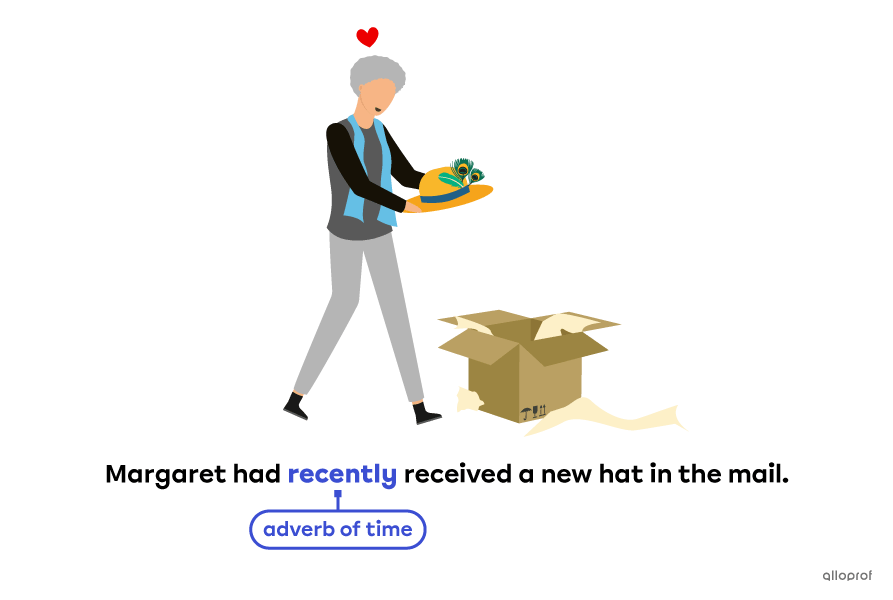Adverbs of time provide general or specific additional information about when and for how long something happened or happens.
Here are some examples of adverbs of time:
|
now |
soon |
forever |
|
yesterday |
tomorrow |
recently |


Adverbs of time are usually placed after the main verb, but can sometimes be placed before it for emphasis. The placement of the adverb does not affect the general meaning of the sentence.
|
Adverb example |
Function |
|
Margaret will finish writing her book tomorrow. |
Placing the adverb after simply states when she will do it. |
|
Tomorrow, Margaret will finish writing her book. |
Placing the adverb before focuses on the when more than on the action. |
Here is a list of adverbs of time:
|
already |
before |
earlier |
|
eventually |
finally |
first |
|
formerly |
forever |
just |
|
last |
late |
later |
|
lately |
next |
now |
|
previously |
recently |
some |
|
soon |
then |
today |
|
tomorrow |
tonight |
yesterday |
Margaret, the character used in the examples, was inspired by the Canadian author Margaret Atwood. To learn more about her extraordinary life and work, visit this website.